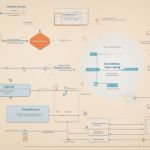As a Managed Service Provider (MSP), you are responsible for managing and maintaining IT infrastructure and services for multiple clients. To provide exceptional service, you need to be productive, efficient, and agile in your approach. The good news is that you can leverage open-source tools to increase your productivity and improve your bottom line. In this blog, we will discuss how MSPs can use open-source tools to streamline their operations and improve client service.
- Monitoring and Alerting. One of the most critical aspects of MSP is ensuring that IT systems are up and running, and any issues are addressed quickly. Open-source monitoring tools such as Nagios, Zabbix, and Icinga can help MSPs keep track of the availability and performance of client IT infrastructure. These tools provide real-time alerts, notifications, and dashboards that can help you stay on top of issues and respond quickly.
- Remote Access. MSPs often need to access client systems remotely to troubleshoot issues or perform routine maintenance tasks. Open-source remote access tools such as Apache Guacamole, AnyDesk, and TeamViewer can help MSPs remotely access client systems securely. These tools provide a secure connection, and some even offer two-factor authentication for added security.
- Backup and Recovery. Data loss can be catastrophic for any business, and MSPs must ensure that client data is backed up and can be recovered quickly in the event of a disaster. Open-source backup and recovery tools such as Bacula, Amanda, and Bareos can help MSPs automate backup and recovery tasks, ensure data integrity, and provide an audit trail for compliance purposes.
- Ticketing System. A ticketing system is essential for MSPs to manage client requests, track progress, and ensure that SLAs are met. Open-source ticketing systems such as OTRS, Zammad, and osTicket can help MSPs manage client requests efficiently. These tools allow you to create, track, and close tickets, and some even offer integrations with other tools such as monitoring and alerting tools.
- Configuration Management. Configuration management is critical for ensuring that client IT infrastructure is consistent and compliant with industry standards. Open-source configuration management tools such as Ansible, Chef, and Puppet can help MSPs manage client infrastructure at scale. These tools allow you to define infrastructure as code and deploy configurations quickly and consistently across multiple clients.
- Collaboration and Communication. Effective collaboration and communication are essential for MSPs to ensure that clients are informed about issues and updates. Open-source collaboration and communication tools such as Mattermost, Rocket.Chat, and Nextcloud can help MSPs improve communication and collaboration. These tools provide features such as group chat, file sharing, and video conferencing, which can help MSPs stay connected with clients and team members.
In conclusion, MSPs can leverage open-source tools to improve their productivity, efficiency, and bottom line. Open-source tools provide a cost-effective way to streamline operations, improve service quality, and meet client expectations. By using open-source tools, MSPs can focus on delivering exceptional service to their clients and stay ahead of the competition.






